Past Brain Star Award recipients: Where are they now?
The annual Brain Star Awards are a partnership between CIHR-INMHA and the Canadian Association for Neuroscience that celebrate Canada's best in student and trainee neuroscience research. We recently checked in with some of the past recipients to hear how their careers have progressed since they won the award. Here's what they had to say:
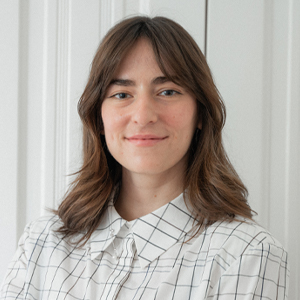
Dr. Claire Gizowski, Calico Life Sciences (2016 and 2020)
Following her PhD, Dr. Claire Gizowski pursued a postdoc fellowship at the University of California San Francisco in Zachary Knight's lab where she investigated how the brain encodes competing homeostatic needs, focusing on hydration and thermoregulation. Having transitioned from academia to industry, she is currently a scientist on the brain aging team at Calico Life Sciences where she is excited about her work's translational potential in helping people lead longer and healthier lives.
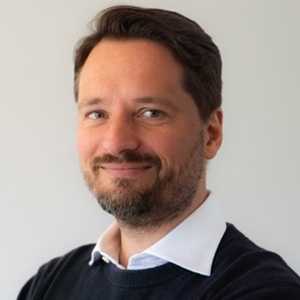
Dr. Martin Munz, Institute of Molecular and Clinical Ophthalmology Basel & University of Alberta (2014)
Following his PhD work on Hebbian plasticity in the Ruthazer lab, Dr. Martin Munz joined the Roska lab in Basel Switzerland for a postdoc where he showed how neuronal circuits in cortical layer 5 develop in the living mouse embryo (published in Cell in 2023). Later this year, he will start his lab at the University of Alberta where he will study the development and function of neuronal circuits and the mechanisms underlying neurodevelopmental disorders such as autism.
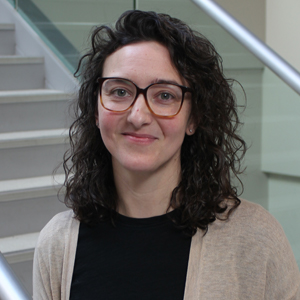
Dr. Nuria Daviu, University of Guelph (2020)
In January 2024, Dr. Nuria Daviu established her own lab at the University of Guelph, Department of Biomedical Sciences. Her current research focus is a continuation of her postdoctoral work. Her team is exploring how the brain integrates stress features (such as the presence of control) to better understand stress and resilience. Circuit-based and behavioral approaches will be combined with in-vivo recording in freely moving animals, with the ultimate goal of improving behavioral-based therapies for stress-related disorders such as PTSD.
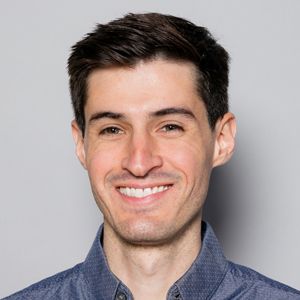
Dr. Andrew Kaplan, Bristol Myers Squibb (2017)
Andrew Kaplan is a Lab Head at Bristol Myers Squibb in Cambridge, MA, where he leads a discovery biology group focused on discovering new medicines for neurodegenerative diseases. His group has a special focus in leveraging human genetics and functional genomics to identify new targets at the neuroimmune interface in neurodegenerative disease.
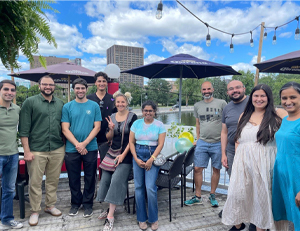
Dr. Pierre Mattar, Ottawa Hospital Research Institute and University of Ottawa (2015)
Dr. Pierre Mattar is an Assistant Professor at uOttawa and a Senior Scientist at the Ottawa Hospital Research Institute. While he continues to work on retinal development and degeneration, the genetic programs his team have been studying are also prominently linked to neurodevelopmental disorders. They've generated several new genetic models to better understand how neurodevelopmental risk genes regulate brain development. Their lab's latest work on this topic is preprinted.
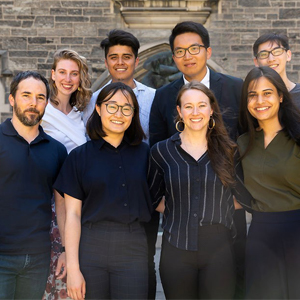
Dr. Robert Bonin, University of Toronto (2014)
Dr. Robert Bonin is an Associate Professor at the Leslie Dan Faculty of Pharmacy at the University of Toronto and a Co-Director of the University of Toronto Centre for the Study of Pain. His research group investigates the neural mechanisms that contribute to the development and resolution of chronic pain. They've recently discovered a cellular process that is initiated by the re-activation of pain processing networks in the spinal cord that leads to the reversal of pathological pain (Zhang, Rodriguez et al., Science Advances 2023). It suggests that ongoing pain can, in certain cases, promote the resolution of pain. Their ongoing research aims to build on the findings to develop new ways of treating chronic pain.
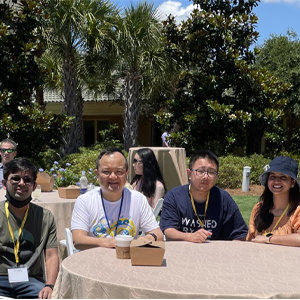
Dr. Ruifeng (Ray) Cao, Rutgers University (2015)
After completing his Banting Postdoctoral Fellowship in Dr. Nahum Sonenberg's laboratory at McGill University in 2016, Dr. Ruifeng (Ray) Cao moved to Minnesota to work as an assistant professor and started his own laboratory at the University of Minnesota Medical School. In 2023, he moved to Rutgers University where he is currently an associate professor at the Department of Neuroscience and Cell Biology, Rutgers Robert Wood Johnson Medical School. His laboratory is interested in the molecular mechanisms that control the brain's biological clock and the role of circadian clock disruption in neuropsychiatric disorders including autism and depression.
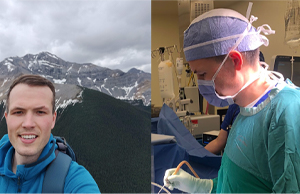
Dr. Patrick Steadman, University of Toronto (2019)
Dr. Patrick Steadman completed his MD in 2021 and is currently a neurosurgery resident physician at the University of Toronto. He is coordinating a post-doctoral fellowship to continue his research and will complete a clinical/research fellowship after residency. A key focus of Dr. Steadman's research is to expand on recent glioma studies which indicate that the most aggressive form (Glioblastoma/Astrocytoma WHO Grade 4) makes connections with adjacent neurons. His aim is to contribute to enabling therapies with improved efficacy and patient quality of life. Dr. Steadman looks forward to the continued combination of lab work on brain function and disease, honing his skills as a surgeon, and helping patients navigate their health in a neurosurgical setting.
- Date modified: